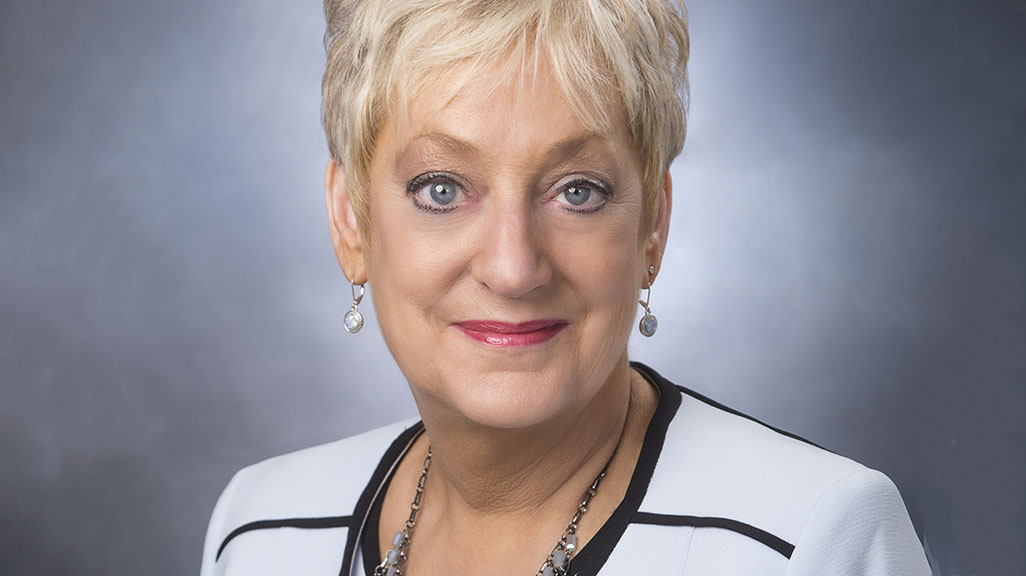2022 Professional Society CEO of the Year: Patricia Blake
Personal experiences drive action on DEI; veteran CEO sees courage and transparency as essential traits.
- July 29, 2022 |
-
 WILLIAM EHART
WILLIAM EHART


CEO of the Heart Rhythm Society is a longtime advocate of medical specialties as well as diversity, equity and inclusion.
CEO Update will recognize Blake at the 9th annual Association Leadership Awards on October 18. The profile of Association Lobbyist of the Year Jennifer Hatcher, of FMI, The Food Industry Association, can be viewed here. A Q&A with Trade Association CEO of the Year Steve Caldeira, CEO of the Household & Commercial Products Association, is upcoming. For more information about the ALA event, go to AssociationLeadershipAwards.com.
CEO Update: What are the essential characteristics of a good professional society leader today?
Patricia Blake: I probably would have answered this differently 2½ years ago. But the first thing that comes to mind is perseverance. Then optimism, transparency, self-care, creativity and finally courage. We have to take stands on things; we have to be honest. If we can't take care of ourselves, there's just no way that CEOs can continue to successfully lead organizations.
What do you mean by transparency?
Transparency has changed a great deal. We didn't used to be personally transparent: "This is what's going on with me. How can I use that to help you?" And that's changed a lot and our staff is expecting that now. Our younger staff is expecting it and even our seasoned staff.
What do you see as the role of a professional society in elevating the profession it represents?
An absolute key is keeping our members up to date with new advances, because it's our job to help them improve patient care. Bottom line: Our role is to help sort through all the information out there. Public education is another big piece. We have a public-facing website, and it's our job to help patients or prospective patients or caregivers understand the disease states that our members are dealing with.
You've said you're a "geek" about small-group dynamics. How does that play out in your management style?
That really translates into committee communication. I'm really big on things like seating arrangements, how conversations are structured and who is speaking, all kinds of things that deal with how to effectively run, and I would even say control, a meeting. I do assigned seating all the time (for staff and board members, even at dinners) because it helps stimulate and organize conversations. I find that if you don't do that, cliques and groups form, and that's not healthy.
What have been your biggest accomplishments in your 2½ years at the Heart Rhythm Society?
We've created some diversity, equity and inclusion (DEI) initiatives that are starting to have an impact. I've created leadership programs for young women electrophysiologists and now we're creating another leadership program for Black electrophysiologists. And we're creating a new digital health event. It's a small meeting geared around the digital health explosion. Apple watches and Fitbits and all those (can monitor) the rhythm of the heart.
Why is DEI so important to you?
My journey with DEI started way back at the Association Forum at least 15 years ago. They were really on the forefront, saying, "We need to look at this as an association community." And personally, I'm part of a biracial marriage. My husband is African American and I have biracial children. So, obviously, it hits close to home. (I know) the obstacles that so many groups that are disadvantaged face. And we know, statistically, that better decisions are made when a group is diverse. And my profession certainly is not very diverse. My board has become more inclusive and more diverse, and the conversations we have are significantly more rich and varied.
What has been your biggest career gamble?
I had been running the Emergency Nurses Association, and I had a staff of about 70 and about 12,000 members and a decent budget. And I left that to go to the American Society for Gastrointestinal Endoscopy (in 2002). There was zero staff. (The group had been run out of Boston by an association management company.) People said to me all the time, "Why are you leaving an organization that has all of these things already in place?" I found space and moved to Chicago and set up all of the systems. Ultimately, I grew ASGE to 60 staff and 15,000 members from about 5,000. We quadrupled the budget and built a 42,000 square-foot training facility. That was a huge gamble. It was stepping out on faith in so many ways.
CAREER HIGHLIGHTS
Medical advancement: Blake started her association career as a meeting planner for the Society of Manufacturing Engineers. But her work has been dedicated to health care since. She rose to deputy executive director of the American Academy of Neurology, then became executive director of the Emergency Nurses Association in 1998. In 2002, she became CEO (and the first full-time staffer) of the American Society for Gastrointestinal Endoscopy. She joined HRS as CEO in 2019.
Vantage point: Blake is a past board chair of the Association Forum as well as of ASAE, both leading organizations for association professionals. "I just can't even imagine my career without the Forum and ASAE," she said. "Then, when I was chair, I could relate to what I was asking the board chair of my association to do. The whole concept of putting yourself in your members' place is really critical."
The same hymnal: "I love to sing," she said. Blake sang in the gospel choir at DuPage African Methodist Episcopal Church in Chicago for 12 years, where she was also a trustee.
